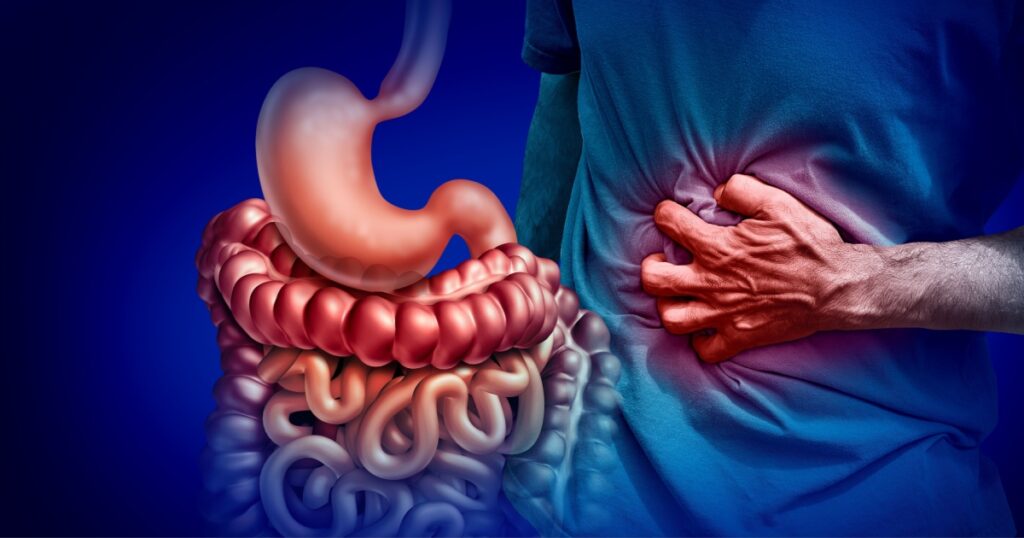Farts happen to all of us. They’re often a source of embarrassment or humor, but they’re a natural part of the digestive process. But when they become excessive, not only can it uncomfortable, but they may be indicative of underlying health issues. Understanding what can contribute to having excessive farts is crucial for managing this very common bodily function.
Diet

The main factor when it comes to farts is what we put in our body. Certain foods are notorious for causing gas buildup in the digestive system. Foods that are high in fiber like beans, lentils, dates, and cabbage are all common culprits. Dairy products with lactose can also cause issues, as well as carbonated beverages and other foods high in fructose or sorbitol.1 These foods can be difficult to digest fully, so the body creates increased gas to cope, which leads to more frequent farts.
Digestive Disorders

Beyond dietary factors, a number of digestive disorders can be responsible for excessive flatulence. Conditions like irritable bowel syndrome (IBS), celiac disease, Crohn’s disease, and of course, lactose intolerance are all capable of disrupting normal digestion.2 Much like dietary choices, these issues all interfere with how the body processes foods, which makes farts more common. Managing these conditions may involve changing your diet and, in some cases, might require medical intervention to alleviate the symptoms.
Read More: How Often Should You Have a Bowel Movement? Gastroenterologist Explains.
Stress
As with most bodily issues, stress can also play a role in how often farts take place. Stressful situations can lead to increased swallowing of air (aerophagia) which contributes to gas buildup in the digestive tract.3 People experiencing high-stress levels may also show symptoms of IBS, which includes excessive farts. Try to adopt stress-reduction techniques like mindful meditation or deep breathing exercises to help mitigate excessive farts.
Swallowing Air

As previously mentioned, the accidental swallowing of air, whether it happens while eating, drinking, or any specific behaviors like smoking or chewing gum, aerophagia can contribute to excessive farts. The excess air accumulates in the digestive system, which then leads to more gas expelled at the other end. Whenever possible, try to make conscious efforts to avoid swallowing air, as well as avoid carbonated beverages to reduce flatulence and aerophagia.
Bacterial Imbalance

Disruptions in our internal bacteria balance can also lead to more farts than usual. Our digestive tract is full of natural bacteria designed to help break down our foods (also called our “microbiome), and if you’re out of balance, your body will make it known to you. Antibiotic use, foodborne illnesses, and some underlying medical conditions can change your gut bacteria composition, which leads to increased gas production. While it is an obvious answer, simply restore your bacterial balance with probiotics or dietary adjustments to alleviate flatulence.
Read More: The Pill That Can Track Your Gas (Yes, It’s a Real Thing)
Medical Conditions

There are a few medical conditions that can contribute to excessive farts. Autoimmune pancreatitis, diabetes, gastroparesis, and peptic ulcers can all exacerbate passing gas. These conditions all affect digestive function and can result in bloating, abdominal pain, and increased flatulence. Management usually involves addressing the underlying condition with medication, making lifestyle changes, or diet modifications.
Treatment and Prevention

Managing farts often involves a combination of lifestyle adjustments and, in some cases, medical intervention. Keeping a food diary to help track and identify trigger foods, as well as consuming smaller meals more frequently, can help you start on your path to fewer farts. Be sure to avoid habits that promote air swallowing, and be aware of over-the-counter remedies such as simethicone that can also help alleviate symptoms.
Conclusion

Flatulence in general can be uncomfortable and embarrassing, but understanding its causes is the first step toward effective management. By addressing dietary habits, managing stress, and seeking appropriate medical care, individuals can minimize farts in their daily lives. Using a combination of lifestyle changes and targeted interventions, it is possible to achieve relief and restore digestive comfort.
Read More: Stop holding your farts in – here are 5 health benefits of passing gas
Sources
- “What Causes Excessive Farts?” Health. Jessica Migala. August 4, 2023
- “Why Do I Keep Farting?.” Healthline. Erica Cirino. June 21, 2023
- “Everything You Need to Know About Flatulence.” Healthline. Kati Blake. April 13, 2023.

